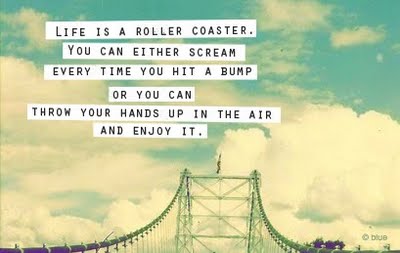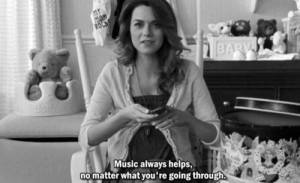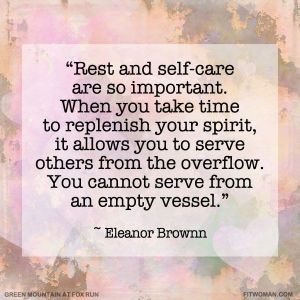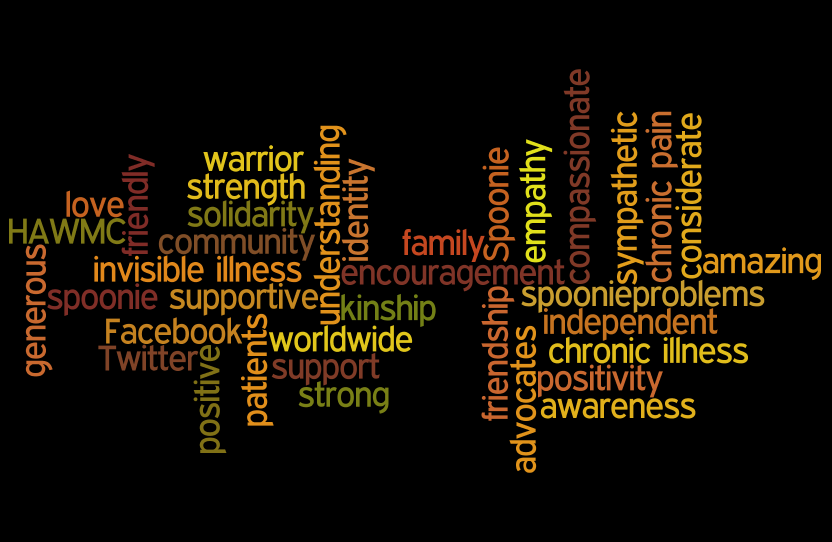
Welcome to the Health Activist Writer’s Month Challenge brought together by WEGO Health – a social network for all health activists. Again, I am participating in the annual Writer’s Month Challenge in which I will be writing about my health activism and health condition based upon given prompts.
Wednesday 29th April: Product Review
What’s your favourite health-related product? Share it with your community and tell them why you love it so much and how it has helped you on your patient journey.
The pain that I experience in legs as a result of the spastic paraparesis (stiffness and weakness in the muscles of the legs) is severe and unrelenting. The medication, pregabalin that I take to control these symptoms, however only seem to dull the pain somewhat and as a result, I still live with these debilitating symptoms every day.
Last year, whilst on the cruise, the intensity of the pain had increased prior to leaving for the holiday. I was prescribed co-codamol on top of the existing medication, but it only helped somewhat and found that it helped more with insomnia that I was experiencing as a result of the pain. My Mum decided to book a spa treatment for her and myself; a luxurious 60-minute full-body massage.
Research has shown that massage is effective in helping to relieve and reduce pain. Studies suggest that there are several ways that it does just that. For instance, massage is thought to increase blood flow to sore, stiff joints and muscles, which are warmed by the extra circulation. Furthermore, massage also triggers the brain to release natural painkillers as well as helping to speed the flow of oxytocin. Oxytocin is a hormone that relaxes muscles as well as promoting feelings of calm and contentment.
It was pure bliss! After the massage had ended, I felt incredibly relaxed and found it also lessened the pain also! Bonus! The combination of the massage itself, and the oils used, which is said to ease the pain (the masseur asked of any medical issues prior to starting the massage to tailor it to my needs) really helped to ease the severe discomfort in my legs. We were also if we would like to purchase the oils that were used during our massage, Mum purchased, to use them at home to massage my legs when the pain was at its worst.
Massages, as I am sure you are well aware of, are incredibly expensive and as I am unable to work because of my condition, it is therefore not an alternative therapy that I can afford. Obviously, we still had the massage oils to use, but as Mum has never been trained as a masseur, the effects were not the same! After doing some research and after talking to people also experiencing chronic pain, I thought about buying an electric body massager to see if it would work in helping to ease some of the pain.
It would also allow me to massage my legs by myself without relying on another person, especially as I am often on my own in the house. Being able to do it myself would allow me to be able to massage my legs when I really am in the need of one.
After a lot of online research, I purchased the Homedics Perfect Reach Massager.
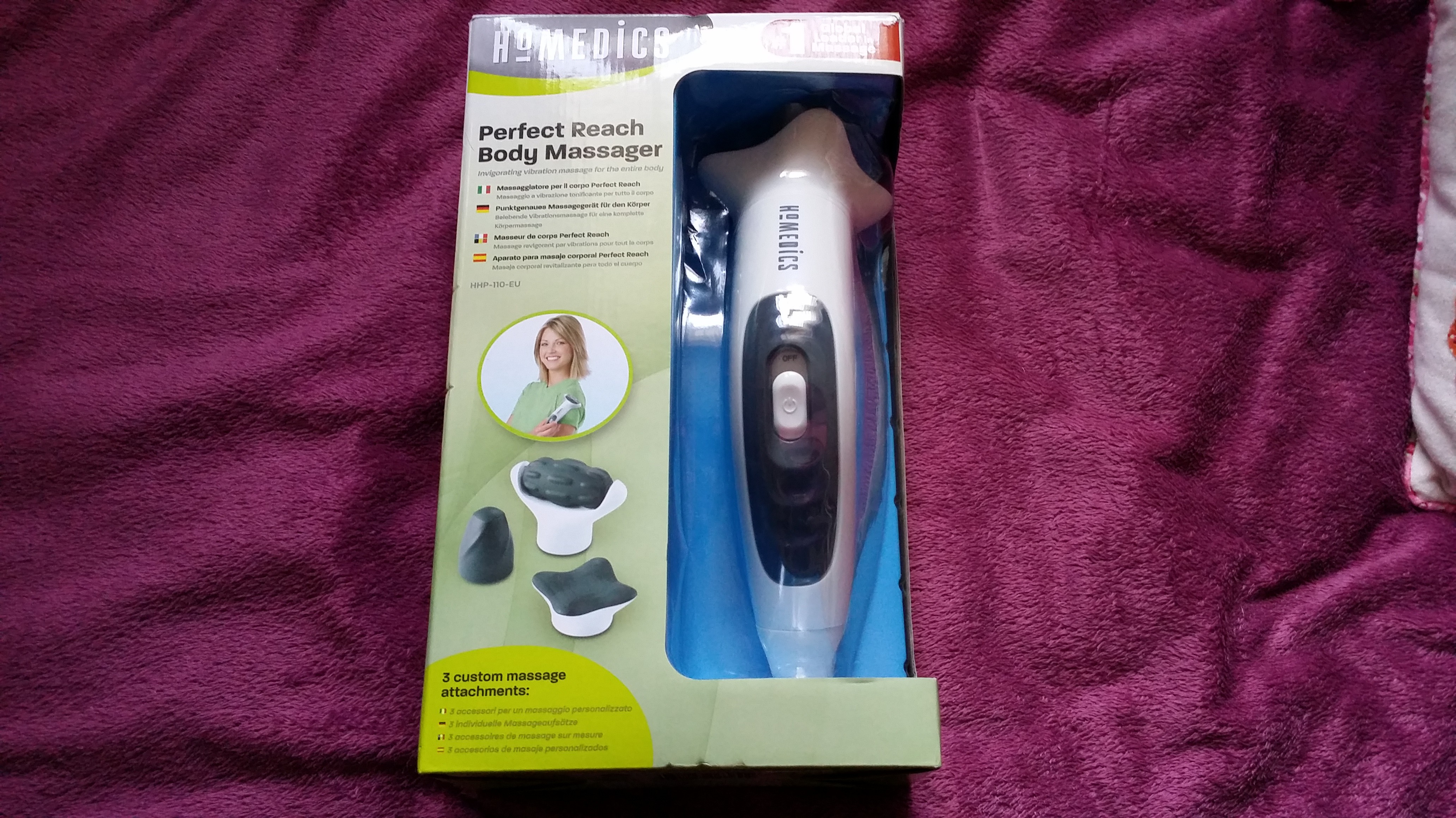
It’s great as its light-weight which allows you to be able to hard to reach areas, and as someone who struggles to hold heavy items, it’s light enough for me to be able to massage all areas of my legs. The massager also has two different speed settings; which allows you to either choose a low setting for a relaxing massage or the high for a more invigorating massage. I have found that on days where the pain is not quite as intense, the low setting is appropriate speed to relax the muscles in my legs; whereas the more invigorating setting really helps knead the muscles, allowing them to relax and to alleviate some of the pain.
The device also has 3 custom attachments, which includes an attachment which has a wide area for comforting larger muscles (very useful for the legs, I have found), a roller for kneading massage and a spot for targeted relief.
Using it has helped alleviate some of the pain that I experience, obviously, it isn’t a magic wand and therefore it still a symptom that I live with constantly, but is a tool that I find helps when the pain is at its worse.
And I have found that its positive effects do not just include pain management, but I have found that after having a massage I am more relaxed and less affected by stress.
I personally love the product and has a place in my comfort box as just one tool in my battle against chronic pain.
And it allows me to be able to have a regular massage without the hefty price tag!









